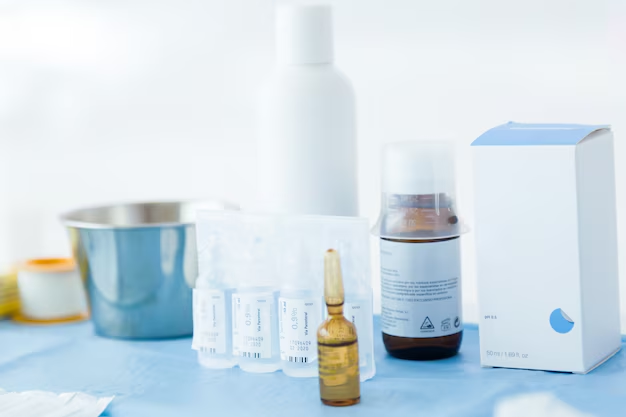Understanding the Refrigeration Needs: Gabapentin Liquid Explained
Picture this: you've just picked up your prescription for gabapentin liquid, and the pharmacist reminds you to store it in the refrigerator. But what happens if you accidentally leave it out? Understanding the storage needs of medications like gabapentin liquid is crucial not only for maintaining its efficacy but also for ensuring safety. In this article, we'll explore how long gabapentin liquid can safely be left out of the refrigerator, why proper storage is essential, and provide insights into related storage practices.
What is Gabapentin Liquid?
Introduction to Gabapentin
Gabapentin is a medication primarily used to manage neuropathic pain and control seizures. While commonly available in capsule and tablet forms, the liquid form is often prescribed for those who have difficulty swallowing pills.
Importance of Liquid Form
The liquid form of gabapentin is a suspension that requires specific storage conditions to remain effective. This means its chemical and physical stability depends on proper handling, including where and how it’s stored.
The Importance of Refrigeration for Gabapentin Liquid
Why Refrigerate?
Chemical Stability: Medications like gabapentin can degrade when exposed to temperatures outside the recommended range, which can affect the drug's efficacy.
Microbial Growth: The liquid form is susceptible to microbial growth if not stored correctly, potentially impacting the medication's safety.
Recommended Storage Conditions
Pharmacists often instruct patients to store gabapentin liquid in the refrigerator, typically between 36-46°F (2-8°C). This ensures the medication maintains its intended potency and safety throughout the prescribed period.
Understanding Shelf Life Outside the Refrigerator
Short-Term Exposure
A Few Hours: While specific guidelines can vary, short periods out of the refrigerator, typically a few hours at room temperature, may not drastically affect the medication. However, returning the bottle to a colder environment as soon as possible is important.
Risks of Prolonged Exposure
Extended Duration: Leaving gabapentin liquid out at room temperature for extended periods, such as a day or more, can lead to significant degradation or spoilage. This reduces its effectiveness and raises safety concerns.
Signs of Spoilage: If the liquid changes in color, develops an unusual odor, or shows visible signs of separation or precipitation, this may indicate spoilage, and the medication should not be consumed.
Best Practices for Medication Storage
Tips for Ensuring Efficacy
- Consistent Temperature: Always place gabapentin liquid back in the fridge after use.
- Avoid Frequent Temperature Changes: Repeated warming and cooling cycles can degrade the medication.
- Check Expiry Dates: Ensure that all medications, including liquids, are consumed before their expiration dates as printed on the label.
Handling Spills and Leaks
Spills should be cleaned immediately, and hands should be washed to avoid unintentional ingestion or contact with sensitive areas.
Related Storage Insights: Comparing with Other Medications
Similar Refrigerated Medications
Just like gabapentin liquid, many other medications, such as certain antibiotics, insulin, and vaccines, require refrigeration. This popular storage practice minimizes chemical breakdown and deterioration.
General Medication Storage Advice
- Read Labels: Always understand storage instructions provided with medications.
- Secure Environment: Store all medications out of reach of children and pets to prevent accidental ingestion.
A Practical Summary: Gabapentin Liquid and Storage
Here's a quick checklist to ensure you're getting the most out of your gabapentin liquid:
- 🔹 Keep Refrigerated: Always return to refrigerator after use.
- 🔹 Short Periods Out: Safe for short periods at room temperature, e.g., during dose preparation.
- 🔹 Avoid Prolonged Exposure: Avoid leaving it out longer than advisable.
- 🔹 Signs to Watch: Be alert to changes in color, smell, or texture.
- 🔹 Follow Instructions: Adhere to all pharmacist recommendations and expiry dates.
Practical Consumer Tips for Medication Handling 🏠
- Plan Ahead: When traveling or leaving home for extended periods, use portable coolers to keep your medication at the correct temperature.
- Label Awareness: Immediately familiarize yourself with storage requirements upon receiving your medications.
- Open Dialogue: Communicate with your pharmacist to clarify any doubts or questions about medication storage.
Closing Thoughts
Understanding how long gabapentin liquid can be out of the refrigerator and comprehending general storage principles are vital components of responsible medication management. This knowledge empowers you to maintain the medication's efficacy and ensure safety, ultimately contributing to the overall success of your treatment plan. Remember, while this guide provides essential insights, consulting with healthcare professionals for specific advice is always the best approach.

